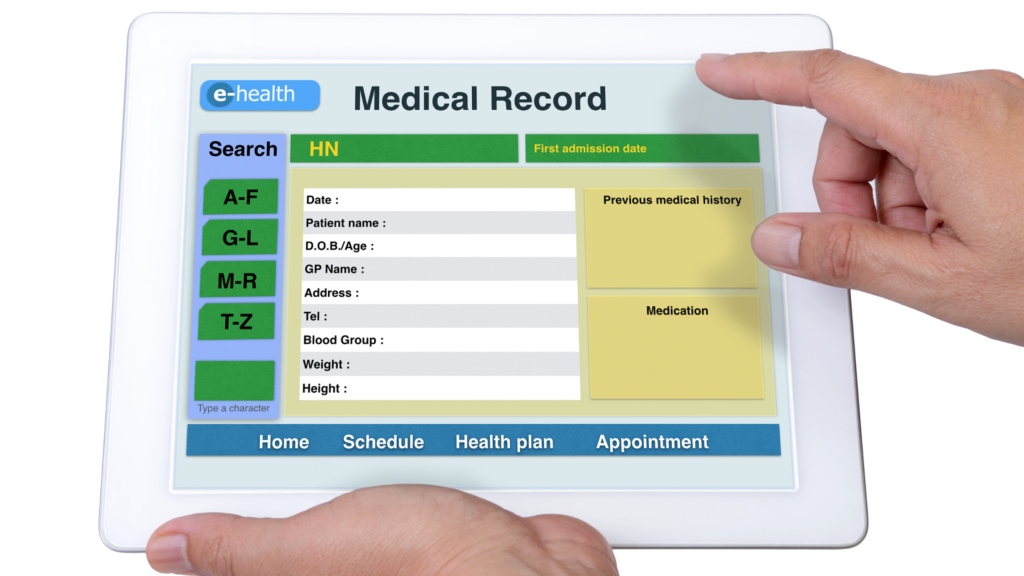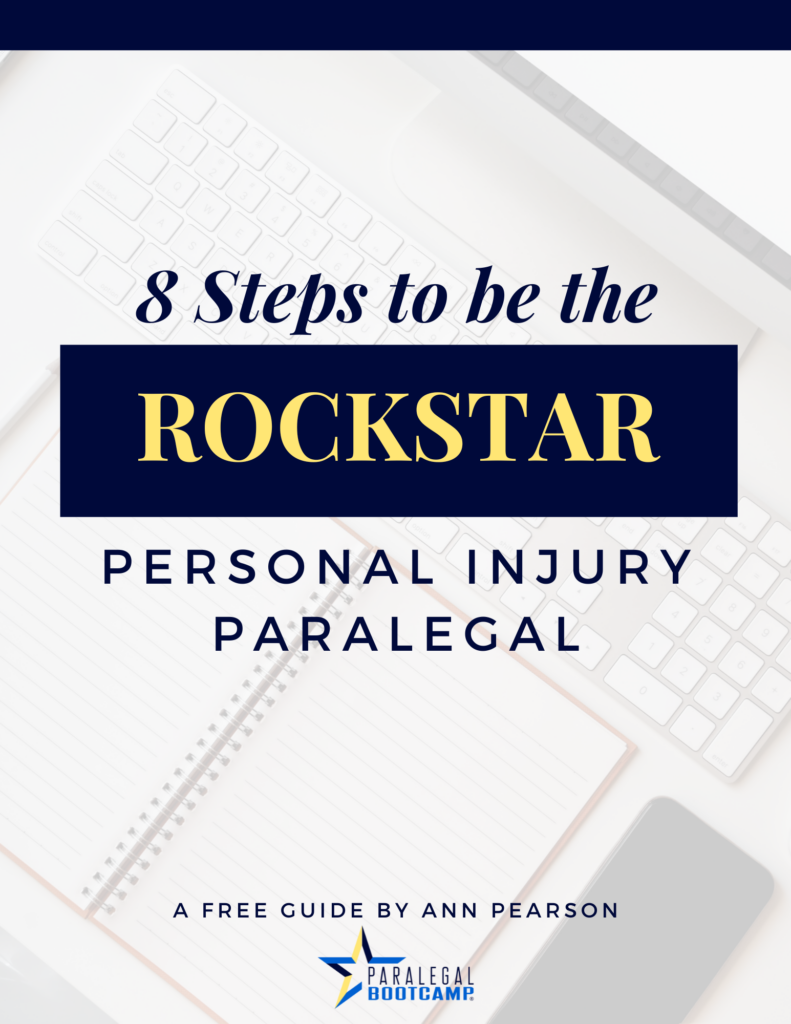Tips and Tricks for Personal Injury Paralegals
Do you want to know how to be a successful personal injury paralegal? Let me show you how.
When I graduated with my degree in paralegal studies, I was so anxious to start my first job. I had no idea the type of law I wanted to work in; I just knew I wanted to help others. After applying to multiple different law firms, I finally got a job as a personal injury paralegal.
Obviously, any type of transition into a new job can be difficult. After just one week, I was ready to give up. This was my first paralegal experience after graduating, and I was so worried I made the wrong career choice.
I decided to hold out and give it more time, and I am so glad I did. Personal injury can be intimidating at first, especially if you have close to zero experience with it, but it gets easier as you go. This is the most fulfilling and my favorite job I have had, even though it can be difficult at times.
In this article, I will share some of the tips and tricks I have learned my first year of being a personal injury paralegal in hopes of supporting others in being a successful personal injury paralegal and to help those interested in working in this type of law.
Personal Injury Paralegal Boot Camp
As a personal injury paralegal, you have an important role in the pre-litigation phase of your claim files.
But where do you even start when you’re managing 80+ active files?
This online course will give you all the tools to manage that heavy case load. It walks you through every phase of your personal injury claim files, from the case intake through the demand package and more.

1. Use Email Folders
In this career, organization is extremely important to be a successful personal injury paralegal, especially when it comes to emails. As paralegals, we constantly have emails coming in from clients, medical providers, attorneys, insurance companies, and more. Keeping them in your inbox can get cluttered and disorganized but deleting them means there’s no looking back if needed.
Having one email folder per client has been a lifesaver for me. As soon as I look over and respond to an email about a client, no matter who it is from, I put that in their folder to always save the original correspondence. This makes it so much easier to look back if needed but keeps your inbox empty, so you aren’t scrolling through as many emails trying to find a specific one.
Here are 4 ways to stay ahead of email jam.

2. Become a Notary
Before getting this job, I had never even thought about getting my notary certification. My firm paid for me to become a notary and paid for my stamp, too. It has been extremely helpful because a lot of documents need to be notarized before being sent. It’s a lot easier to be able to notarize these documents yourself instead of searching for another notary.
Not only does it help to be a notary at any firm, but some firms even require you to already be a notary when applying. Even if it isn’t a requirement, it looks good to already have your certificate. Plus, they last 10 years so you won’t have to get recertified for a while. Not only has this helped me at work, but I have also been able to notarize documents for my friends and family members, and it can also be turned into a side hustle!

3. Leave the Emotional Baggage
As a personal injury paralegal, I specifically deal with motor vehicle accidents. It can be tough to look at some of the accident scenes, injuries, or talk to traumatized clients.
I still remember the first case I got that involved a death, and every time I would speak to the client, I would feel my heart sink. Being able to take your own emotions out of it is a very important skill for a successful personal injury paralegal, especially if your type of law is at times gruesome and saddening. This doesn’t mean you have to feel zero empathy, but it’s important to learn how to not let it drain you.
When I first started, I would take a lot of this emotional baggage home and let it get to me, which was very dangerous for my own mental health. I had to learn how to separate my personal feelings from work, and it did get easier the more cases I got.
At the end of the day, all we can do is help these clients the best that we can by working on their case and keeping them in the loop. Don’t forget to take care of yourself!
4. Communication is Valuable
Communication is one of the most important skills to have in ANY type of law. Not only between attorneys and paralegals, but also between us and the clients. In my experience, clients are usually very grateful when you call or text them with updates, and if I were on their end, I would want to be kept in the know as well.
In this area of law, requesting medical records and bills is a very important step. It can take some time to get them in, but communicating with the providers, attorneys, and clients can expedite the process and prevent a lot of frustration.
We also get insurance companies and health insurance providers calling us asking for updates or have specific questions to be answered, and it is crucial to get back to them as the case progresses. Not communicating with the parties involved may hurt the case.
5. Don’t Take It Personally
We do have to keep in mind that our clients are going through some of the hardest times in their lives. Getting into an accident not only causes physical pain and issues, but the mental drain of everything takes a toll as well.
Some of my clients are traumatized, some are not able to afford to be out of work for their injuries or to afford transportation. You never know exactly what someone is going through.
I’m sure not everyone has dealt with frustrated clients, but it happens. My advice is to not take anything they say personally and just remind yourself they’re going through a very difficult time in their life and are struggling.
6. Read Medical Records
A lot of times personal injury paralegals will just skim over the medical records before sending them in a demand packet, or at least that’s what I gathered in my experience. Reading the medical records to see your clients’ injuries not only helps you understand their injuries better, but it is extremely helpful to have the medical knowledge.
When I first started, I had no idea there were different types of disks and injuries caused by accidents. By having some clients with bulging disks and some with herniated disks, I was able to learn so much about them and be able to understand what my clients were talking about.
We aren’t doctors and should never give medical advice, but having the knowledge of medical issues relating to car accidents is a huge plus in this field.

7. Learn About Property Damages
At my firm, and most personal injury firms, we will specifically handle the injuries and not the property damage of the vehicles. This is typically up to the clients to handle, but having knowledge to help your clients through the process will relieve lots of their stress.
I had several clients come to me about property damage when I was still new, and I was just as confused as they were. Now, I can answer their questions about property damage which prevents frustration and confusion on all ends. Even if it’s just knowing the bare minimum, it is helpful to know the process.
8. Patience is Key
When I was in school, my professors often stressed to us how slow the law can be. In personal injury, there is a LOT of waiting, whether it be for clients to finish their treatment, medical records and bills to come in, a call-back, or waiting for the insurance company to review the demand package.
Also, some cases take longer than others. Some accidents are worse than others, and some injuries are more severe. These things take time, so patience is needed all around.
A Personal injury course beyond what you learned in school can be extremely beneficial to help you become a better case manager.
9. Double Check, Triple Check, and Quadruple Check
There is no limit on how many times you can, or should, check over something. Whether it’s a demand package, medical records, bills, or a simple email: it should always be looked over at least once.
Mistakes happen, but if you can prevent errors by simply looking over things, do it! It can prevent additional stress down the road.
A Paralegal Resource For You

Free Guide for
Personal Injury Paralegals
Are you ready to be a rockstar personal injury paralegal?
When you’re starting out, it’s hard to know where to even start. We’ve got you covered! Here is your checklist.
The Paralegal Boot Camp gives you 8 actionable steps to get you started right now on a path to success.
Our free guide shares the 8 steps you need to take right now to start standing out at your firm.
10. Ask Questions
As I was being trained for this job, I was told what to do and how to do things, not so much why. I would do what I needed to do but had no idea how to answer my clients’ questions a lot of the times. I didn’t know why we had to do certain things, I just did them!
I started asking more questions and learning, and through that I was able to answer more questions. Not only does this help my clients, but it helped me gain so much confidence about my ability to do the job.
Overall, being a successful personal injury paralegal can be difficult at times. You just have to learn what works best for you. I hope my tips and tricks can help any future personal injury paralegals transition into their role!
Here’s how to make a smooth transition into any new paralegal role.

Meet the Author
Growing up, I always had an interest in law and knew I wanted a job in the legal profession. After I got my degree in Paralegal Studies, I got a job as a personal injury paralegal and fell in love with it. It’s rewarding being able to help others through some of the most difficult times of their lives. I hope to one day be able to go to law school, but I love my career as a paralegal for the time being. When I’m not working, I love to have movie nights, spend time with loved ones, and play video games!

























